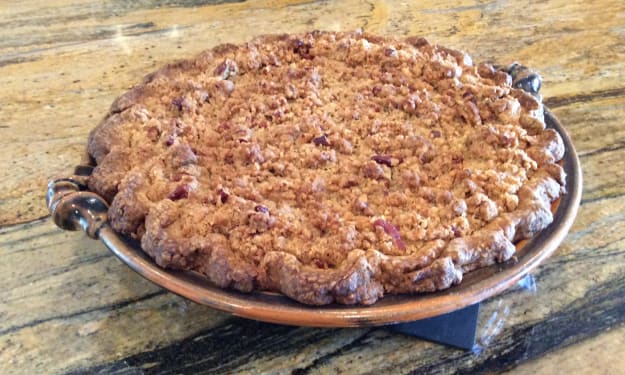
Day 44 out of Le Havre began hot and slow, with almost no wind and Victory picking up an uncomfortable sloshing that threatened to make Hannah and little Bertie sick again. Her son Willy, on the other hand, was by now an old hand in the rigging, and with his keen young eyesight, he was often ordered to the maintop to watch for islands and shallows. A low bank of far-off clouds came ever closer, and the wind began to build. Soon Victory was flying down the waves, in her element. Captain Anderson had the helm in hand, and he looked perfectly happy there, severe and alert, with smiling eyes.
On Day 45, Victory lost the wind again for watch after watch, and Hannah worried about their food supply. The ocean crossing had been slow and the fishing uncertain. Forty-five days was all a crossing should require. It was 1836, after all, not 1492, and there had been thousands of voyages to America, and to its New Orleans, where they were bound. She had already cut her rations to leave more for the children and stretched every meal with oats and hardtack. So far, they had not complained, and she was determined to eat less than ever.
On Day 46, Willy spotted red sails in the distance, too far away to hail, and today there were terns gliding around the sails and dipping into the wake, where Victory kicked up small fish. Far away, another ship appeared, a barque like themselves, three-masted, and then it slipped below the horizon.
Old Crouse said, “’Tis the nearness of the Caribbean Sea.” The great excitement at the sight of the first island faded as such sightings became common. The wind sometimes carried a whiff of land, but they had not yet seen fishing boats.
Willy was in the maintop long hours, as Captain Anderson now posted lookouts day and night against the dangers of islands, reefs and shallows. To Willy, it seemed years since he had first gone out along the mainyard to help lower or raise a sail. His first time, he thought the footropes would be the death of him, they jumped and pitched so as he and others moved along the yard. He was terrified when they were expected to brace themselves, bellies on the yard and feet horizontal to reach down and gather the sail. Now he could do so with confidence, but he still dreaded the order’s coming in a blow, as he knew it must, and Hannah shared his dread, as any mother would.
Old Crouse warned everyone: “Don’t be getting excited. It’s a weary long passage yet to be made.” It would be at least a fortnight’s sailing, he said. What he did not mention was that they had entered dangerous waters, threatened by hurricanes, and alive with pirates and privateers to whom a merchantman like Victory looked like a fat, easy prize.
“Two more long weeks,” Willy said.
“Aye,” Hannah said, “three weeks longer than we planned, unless we are lost.” She did not realize little Bertie was listening, but now the child spoke up.
“Have we sailed past America, Mama?”
“No, of course not, darling. There’s an end in sight—think of all the islands we’ve seen.”
Even before the sun rose the next day, it was clear that the weather was turning uncommonly dirty, but only those reading a barometer had any idea how quickly it might be upon them or what a rough patch they might be in for. Very soon Victory was under nothing but storm sails, and those ready to be taken in at the least word from the captain. The wind had shifted to the sou’-sou’-east and ran with the prevailing northerly current, now confused by rollers from the east and steadily picking up force. Captain Anderson put the barque into a run before the wind, which with luck was going at least approximately where he wished to go, and she flew along, making truly remarkable distance. On deck, every sailor watched the sails intently. Orders came sharply, and over and over the crew ran to adjust the sails, for fear the most minor tweak, unmade, could lead to a listing and then a broach. It was the rule of the sea, whether mending a sail or tending one, that the slightest shoddiness or carelessness could begin a slide into disaster. Everything required total attention, and each task, no matter how small, had to be done to perfection.
The air had been full of rain for some time, with lightning in the clouds to the north, waves washing across the bow, some swept aft as far as the capstan, when suddenly Victory was hit by a violent adverse wind. It carried off the foretopgallant sail, which though furled tight, was caught by a loose edge and ripped open. The sail was torn to ribbons, and the lines, cut loose, sliced through the air, threatening to carve through any man caught in their arc. From then on, the gale played out in a succession of heavy squalls. At two bells, Captain Anderson called all hands to shorten sail in pitch blackness. The captain was at the wheel with two others, it requiring three men to hold and turn the wheel. On this dark night, they steered by the wind on their faces.
Willy was on the off-watch but had slept in his clothing in anticipation of an all-hands order. When it came, he stepped onto the main deck and was immediately up to his knees in water and bowled away as a wave swept across the deck. Only the nets at the rail saved him. He got to his feet, seized the ratlines and began to climb, hanging onto shrouds for dear life, while the ship rolled and pitched.
“Lay aloft, me boys!” Main course first.” Captain Anderson somehow made himself heard over the screech of the wind. Far above the captain, Willy stepped out onto the footropes of the larboardside main yard.
“Farther out! Spread yourselves out!” Captain Anderson could still be heard.
Willy was in the middle, Old Crouse nearest the mast, and a sailor named Davey on the outside. As he and the others spread out, the order came. “Haul away, Haul up!”
At his first grab the wet sail flipped out of his hand. In forty knots of wind, a flick of a sail could send a man overboard.
Old Crouse yelled at Willy, “Keep aholt, you worthless Kraut!”
“Gott im Himmel!” Willy shouted back, as if that helped.
From below, Captain Anderson: “Lay out there, Gideon, you useless, empty-headed lump.” The boy Gideon Groves, the youngest member of the crew, was in the yards just above Willy, helping furl the mainmast topsails.
The barque heeled from side to side and pitched forward and back, swinging men in the rigging like kites on a string. Below them, the sea was a fast-moving line of cresting waves, foam spinning off the tops. Rain came at them sideways, peppering their faces, their backs. Then Victory heeled starboard to forty-five degrees, and those on the larboard side, including Willy, were raised high and out over the water. They could do nothing in that moment but cling to the yard. From far above, Willy saw something fall in a graceful arc. He thought it was a spar torn loose, but no, it was flailing as it fell. It seemed impossibly small, like a dog or a doll, and then Willy heard a scream, more of surprise than terror, and suddenly the sound was cut off, and it was gone, lost in the waves.
“Man overboard!” Willy yelled, and Old Crouse did, too, at the same instant, as if they were a chorus.
From the deck, the captain’s voice: “Heave to!” For the second time on this voyage, men ran to back the sails.
“Furl! Furl! Furl!” shouted Captain Anderson, and they furled for all they were worth and slid down the shrouds.
They hit the deck in time to see, in the ocean, the slight body of Gideon Groves bob to the surface, not alive, not gasping for air nor making any attempt to swim, the neck bent at an impossible angle as if it had no bones at all. And then it slid below the waves.
A boat had already been swung free and was ready to launch.
“Belay that,” said Captain Anderson. His voice was absolutely flat. They watched, all of them on deck and those who had come up at the shouting, but there was nothing more to see, no sight again of Gideon Groves.
When at last the storm began to blow itself out, the wind still howling above and sending wafts of foam across the deck, the crew set to work repairing Victory with the fervor inspired by knowing that a much-abused ship can founder and send all aboard to a watery grave. The sea was still violently agitated, the pumps kept going watch in and watch out, but the carpenter and his crew were already hard at work. Old Crouse was one of the men lowered along the side in a bosun’s chair to lay in new lapboards where an immense wave had battered the starboard bow past the copper, the headrails gone and the bowsprit unable to carry its sails, it being little more than a stump. Riggers were hard at work above and below, knotting and splicing, though Captain Anderson would not send anyone up the ratlines to the uppermost reaches quite yet.
Old Crouse told Willy as he returned to the deck and climbed out of the bosun’s chair, “It ain’t half as bad as being up in the yards in the storm, and me about to upchuck at any moment.”
Willy shuddered. He could not think of being in the yards without remembering Gideon and the graceful, horrible arc of his fall.
“It was so loud,” he said. “I knew it would be, but the shrieking of the wind was still a surprise, and the keening of it through the rigging—”
“Aye, and the ship itself, creaking and moaning, fittings popping like it was coming apart at the seams.”
“No wonder she needs so much loving care now.”
“It’s just that we’re out here…” Old Crouse waved an arm at the surrounding sea, “with no idea how far away a harbor might be.”
“Aye, land would be a welcome sight just now, any land at all.”
All this time, Hannah had worked amid Stygian darkness and stench, sick herself and caring for little Bertie, not a good sailor in any storm. The child was cranky, weak, pale, and frightened, and so was Hannah. For long hours she held him, cramped and exhausted, taking comfort in having one child piled in here with her and another at work on the deck and not sunk below the waves and gone forever, like poor Gideon Groves, who slid off the topmast yards, a boy who would never see America, who would never become a man.
About the Creator
Rose Kleidon
University professor emerita (English). Member, the Historical Novel Society and Historical Writers of America. Presenter at conferences for writers and historians. Co-owner and co-founder of Kleidon and Associates. Novelist.






Comments
There are no comments for this story
Be the first to respond and start the conversation.